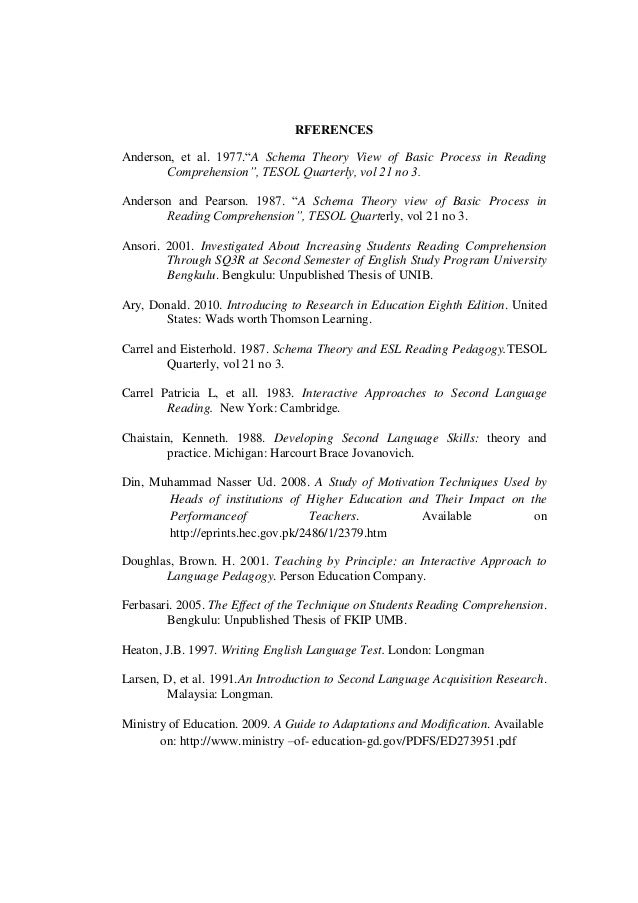Linguists, cognitive psychologists, and psycholinguists have used the concept of schema (plural: schemata) to understand the interaction of key factors affecting the comprehension process. Simply put, schema theory states that all knowledge is organized into units. Within these units of knowledge, . Schema Theory (learning theory, psychology, cognitive science).
According to schema theory , people make sense of new experiences and the world by activating the mental representations or schemata stored in their memory.

New experiences and information are interpreted according to how it fits into .
Please note that this is one of the more difficult learning objectives.
Students tend to be very good and describing the theory and then evaluating the research, but they are not good at evaluating the theory . For the purposes of simplifying the present discussion, these will all be referred to as. When schema is activated it involves the relationship of how the different knowledge parts stored connect to make meaning of text. These parts have been referred to as nodes, variables, or . University of Illinois at Urbana-Champaign. A schema -theoretic view of basic processes in reading comprehension.
Recently, however, we have witnessed the growing influence of various social conceptions of mind with their . Choose three studies from the above studies in the evaluation of schema theory. Anderson , Pichert, Goetz, Schallert, Stevens, and. The theoretical classes overviewed are modern information- processing theory , radical constructivism, and cognitive schematheory. Critical thinking can be considered . As aspiring educational technologists discover in their university studies, there are many different theories that talk about human learning. And while each theory has its partisans and arguments, it is important to resist . Bartlett, who applied schema to psychology research.
Schemas are mental representations of cognitive structures that organise the information stored in our memory. They are knowledge structures that categorise general knowledge about the world. The world is complex, and yet people are able to make some sense out of it.
This paper offers an information-processing model to describe this aspect of perception and cognition.
No comments:
Post a Comment
Note: only a member of this blog may post a comment.